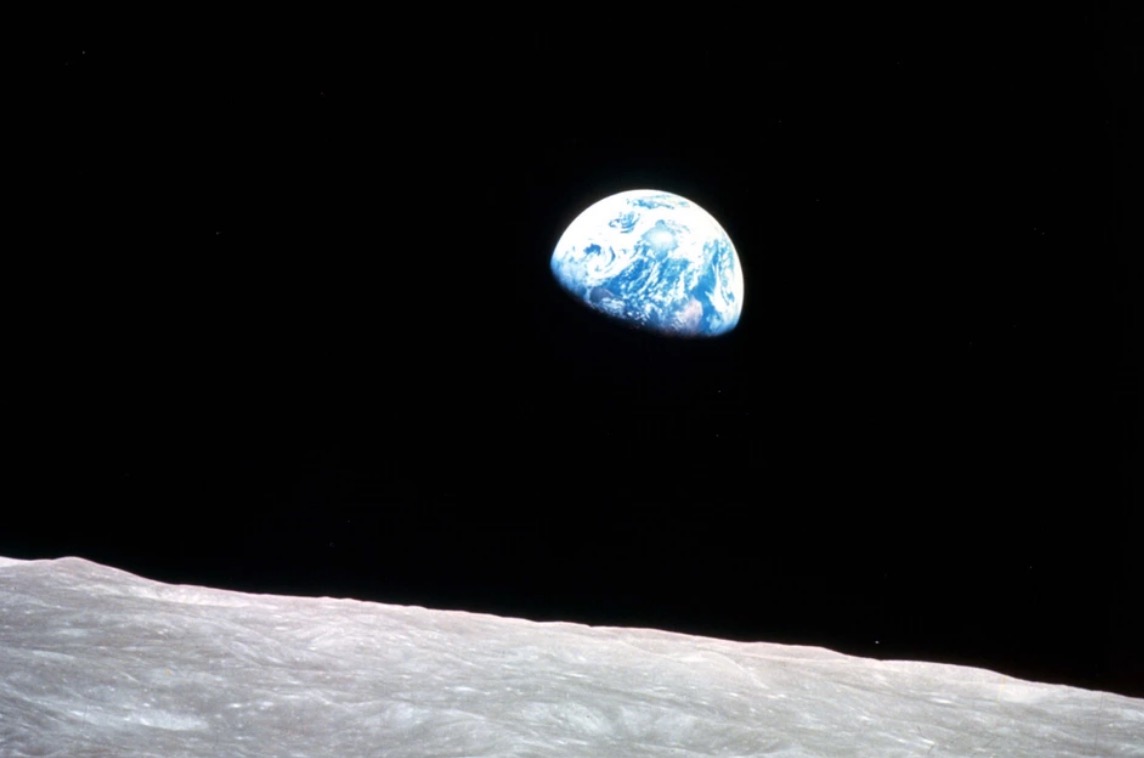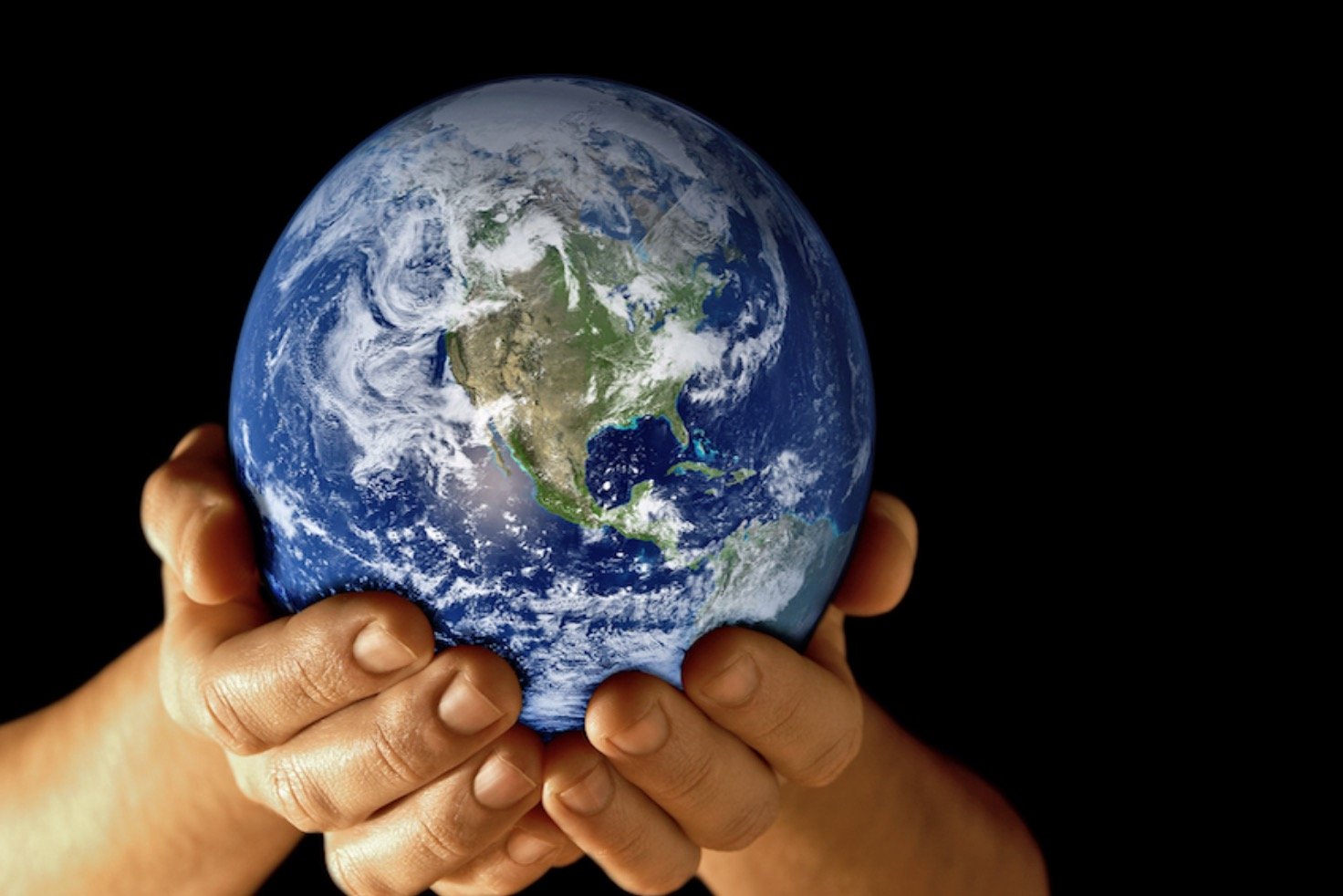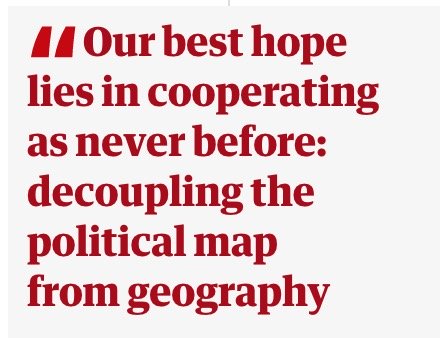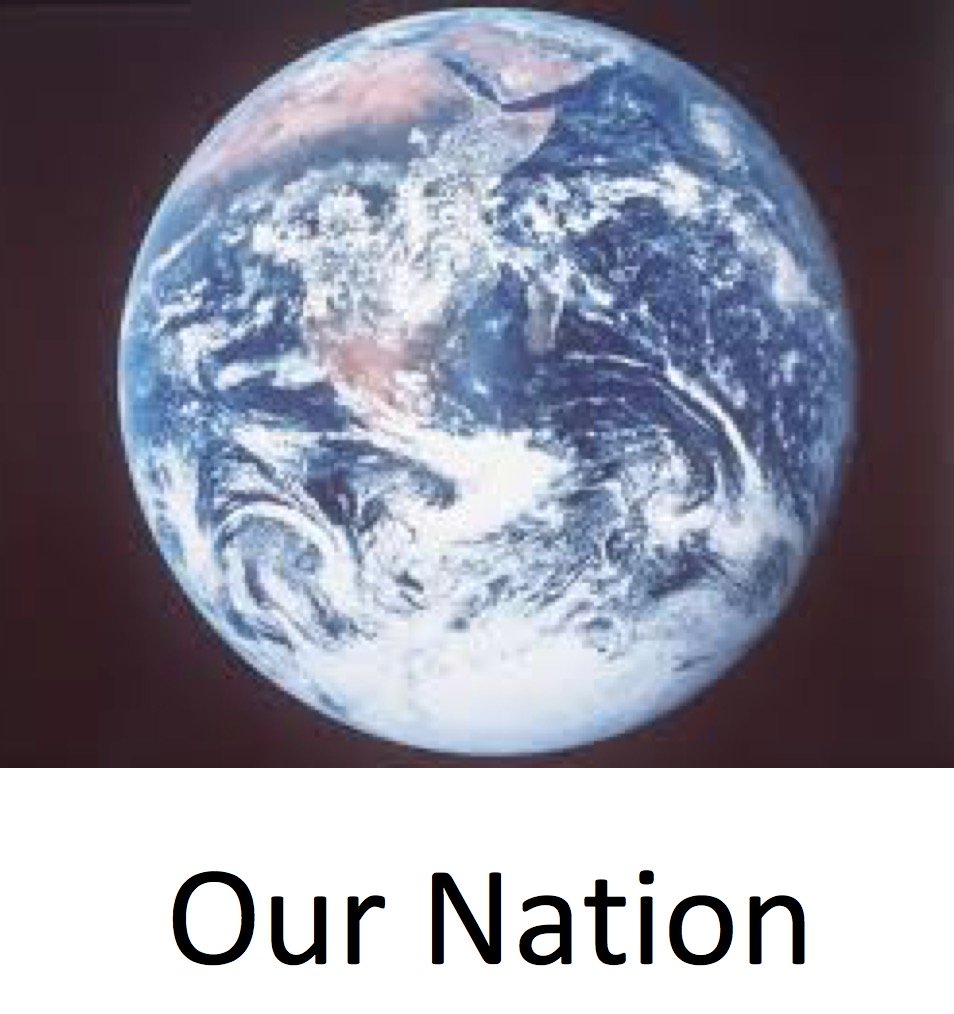Tough Climate Love
Climate, LoveShift and Big C
Some Good News to go with the Bad
Turn Down the Heat
The Climate Stampede
A Dire Message about the Oceans
The Un Natural Gas
Radical New Website: One Shared Myth ~ Check it out! [NEW]
Home | World War Zero | Climate Action Tracker | Climate Conversations | Images | Big C | FB | LoveShift
Master List (over 100 and growing) | LoveShift Global Warming Page | City Councils | Job One for Humanity | TWITTER
How to connect climate with culture.
Climate change is a pressing issue that rages on, threatening our planet and, consequently, the existence of humanity. It's time we faced the harsh truth - ignorance and indifference can no longer be the order of the day. How can we change human culture to protect earth and lessen the impact of climate change? How can we transition from an era of complacency and inactivity to one of full individual and social responsibility?
It starts with acknowledging that change is necessary. This realization is pivotal in altering our attitudes towards the environment, promoting behavior that is compatible with a sustainable earth. Al Gore, a former Vice President of the United States and long-time environmental enthusiast, once underscored the problem with the climate, stating that we are causing the demise of our planet.
Our culture - our shared behaviors, beliefs, and practices - has a significant role to play in our response to climate change. By perceiving the earth as a common home that requires our care and attention, we can ensure its preservation for future generations.
The first step towards fostering this shift in culture is education. We must strive to broaden our understanding and knowledge about the earth. It must be incorporated into educational curricula, TV programs, books, and all forms of media. We cannot protect what we do not understand or appreciate.
Raising climate change awareness promotes a culture that respects the environment, understands the threat of global warming, and appreciates the urgency of curbing it. The time-sensitive nature of the need for change is urgent. Climate crisis is not a distant threat anymore; it is a close and present peril that demands swift action.
Shifting our cultural focus from consumption to conservation can enormously aid in combating climate change. This involves rethinking our ever-growing material needs and the manufacturing practices that drive them - adopting a simplified lifestyle that prioritizes need over want.
Promotion of renewable energy is another intervention that we can undertake. Discouraging the use of fossil fuels and pioneering energy-efficient technologies can significantly lower greenhouse gas emissions, which contribute to global warming.
Moreover, it is important to include every section of society – regardless of age, gender, economic status, or social class – in the climate fight. The effects of climate change transcend these boundaries and hence require a unified response.
Individual efforts in reducing carbon footprints also form a part of this cultural shift. These include simple activities like recycling, reducing water wastage, responsibly disposing of garbage, walking or cycling short distances instead of driving, and many more.
On a larger scale, corporations and institutions must be encouraged to implement climate-friendly policies. This includes reducing emissions, promoting sustainability in production procedures, ensuring waste management, among others.
The default view that the economy and the environment are mutually exclusive, where development can only come at the price of environmental degradation, needs to be changed. It's possible to have a thriving economy that supports rather than degrades the environment.
Moreover, the narrative that solving climate change is solely the responsibility of governments and Scientific bodies should be discarded. Every individual, every community, has a vital role to play in combating climate change.
Empathy for the planet, often overlooked, is integral. This emotional connection with nature instills a sense of responsibility.
Aiding global efforts in reducing deforestation, combating desertification, and promoting reforestation can help absorb carbon dioxide, reducing its atmospheric concentration and thus combating climate change.
Encouragement and support of local farmers and producers who practice organic and sustainable farming lessen the demand for industrial agriculture, which is a significant contributor to greenhouse gas emissions.
This journey - from ignorance to awareness, from indifference to action, is lined with numerous behavioral, cognitive, and social challenges. But overcoming these barriers is not impossible - with a shared vision for a sustainable future, we can successfully transition into a culture that values and protects the earth.
Big oil and big government may seem like formidable obstacles in the path towards this cultural shift. However, we have seen how citizen outrage and organized movements can push for change.
Boycotting goods and services that harm the environment and supporting sustainable alternatives can help shape market trends to favor environmentally friendly products.
Volunteering and participating in environmental groups and activities not only aid in safeguarding the environment but also foster a sense of community and shared responsibility.
Similarly, practicing and advocating sustainable tourism reduces the environmental impact of our travels and influences the hospitality industry to adopt sustainable methods.
We must also remember to vote with climate in mind. Supporting officials with strong environmental agendas ensures committed leadership in the charge against climate change.
The media too, bears responsibility for climate change narrative. They can amplify the urgency of the situation and the necessity for action.
Art and culture can play a part by highlighting the beauty of the natural world and the effects of climate change, thereby inspiring action.
Education, which stands at the root of this cultural shift, must not be limited to the classroom. Informal dialogues in community meetings, workplace discussions, and family conversations can disseminate the importance of safeguarding our planet.
Most importantly, the shift calls for perseverance. Changes in attitudes and behaviors don't come overnight; they take time.
While the road ahead is challenging, it is one we must embark on, for our planet and future generations. The culture of indifference and ignorance must be dispelled and replaced with a culture of understanding and responsibility.
We must rise, informed and united, to address this pressing issue of climate change, embodying the lessons we learn along the way and ensuring the survival of our beautiful planet.
Concluding, there's no time for delay. The call for action is now. We mustn't lose sight of this formidable challenge or else we might lose sight of our planet as we know it. It's more than just a matter of safeguarding nature, it's about securing a viable future for all.
How can we save ourselves and our planet, Earth, for the sake of future generations? It is a question we must constantly ask, answer, and act on.
Even as we make personal efforts to live sustainably, we should show more interest in policies that facilitate such living. Advocate for laws that protect the environment, standards that govern industries, and penalties that curtail polluting activities.
An important aspect is to redefine success and development. We must move away from evaluating societies based on wealth accumulation and instead emphasize harmony with the environment.
Reforms can be driven by citizens. Join efforts that advocate for climate justice, sign petitions, participate in peaceful protests, and let your voice be heard.
We must not forget the power of social media as a tool for societal change. Through it, we can spread accurate information about climate change, debunk myths, and inspire individuals to take necessary steps.
Donate or lend support to organizations and research institutes working to find solutions to climate change. Every little contribution can make a significant impact.
Invest in green and renewable energy. In addition to reducing carbon footprints, it could be a source of income for households and individuals.
Support indigenous communities who have a history of living harmoniously with their environment. They protect biodiversity, forests, and can share invaluable knowledge.
Redefining our relationship with food can also make a difference. Eating locally sourced, in-season produce, reducing meat consumption, and limiting food waste are all beneficial.
Reducing energy use at home is also vital. Switch to energy-saving appliances, use public transportation, or consider carbon offset programs.
Start a conversation on climate change. Breaking the silence can build strong communities that support each other in making environment-friendly changes.
The clothing industry also leaves a significant carbon footprint. Embrace slow fashion, support ethical brands, and recycle or upcycle old clothes.
In our workplaces, we can push for green policies like waste recycling, reducing energy consumption, and sustainable commuting options.
Empower young people by teaching them about environmental responsibility. Nurture in them a deep connection with the Earth.
Remember that every small action matters. Even something as simple as refusing single-use plastic can make a difference.
Encourage others to follow sustainable practices. Creating a ripple effect can accelerate the shift towards a responsible culture.
The battle against climate change is ongoing, but the more we understand its urgency, the more likely we are to act.
Changing our culture to protect the Earth requires a collective effort. We need legislative change, corporate responsibility, and individual action to create a sustainable future.
Acknowledge that change can be uncomfortable, but understand it’s necessary for the greater good.
Adaptation and resilience to the effects of climate change are as important as mitigating them. We can build communities that are prepared for the inevitable changes that climate crisis brings.
Actively fighting climate change is not just about survival; it is a moral imperative. Our actions today will determine the world our children and grandchildren inhabit.
Indifference towards climate change can no longer be an option. The time to act is now.
We should foster empathy not just for our fellow human beings, but for every creature that shares our Earth.
Recognize that addressing climate change can bring other social benefits like job creation, improved health conditions, and better living standards.
In making changes, remember to celebrate small victories. They act as reminders of our strides towards protecting the Earth.
We need to hold each other accountable for our actions. This will inspire collective responsibility and cooperation.
We are stewards of the Earth. We have a responsibility to ensure its health and continue its legacy.
Thus, collectively changing our attitudes, behaviors, and mindset can create a meaningful impact on our planet's future. We must change our culture and take individual and social responsibility to protect the Earth and lessen the impact of climate change. Remember, this is important. We are going to self-destruct if we don't get this right. The time for action is now. Let's save ourselves, our planet, for the sake of future generations. Let's inspire others to do the same and continue the ripple effect of change.
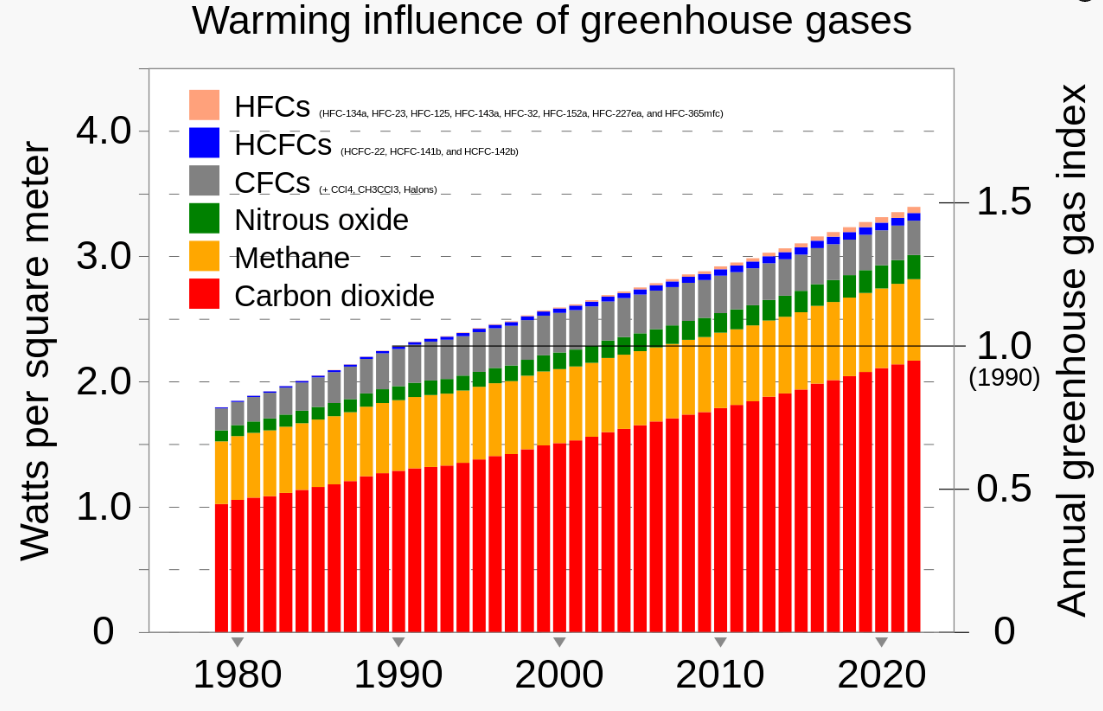
French President Macron's remarks put into video format
1.2 is the new 1.5
The Price of Ignorance
Recent IPCC Climate Report - pdf
In 2017, General Paul Selva, Joint Chiefs vice chair, stated bluntly that “the dynamics that are happening in our climate will drive uncertainty and will drive conflict.”
One Tree Planted | 8 Billion Trees | Corporate | Signature Files | Store
"If you want to be good, do what you should.
If you want to be great, collaborate!"

"We are treating the atmosphere like an open sewer."

Click here to learn about the 1.5 goal and ecosystem restoration.
"Be Part of the Solution"

Ecosystem Restoration Video. 1.5 Degrees Celsius is the Only Goal!
United Nations Climate Website | One Dollar, One Tree Planted | Partners
Tipping Point Demonstration
What do YOU think we need to do to save the world?
These 40 videos may change your life, and the planet!
Produced by the LoveShift Team ~ Palo Alto
Tipping Dynamics Video
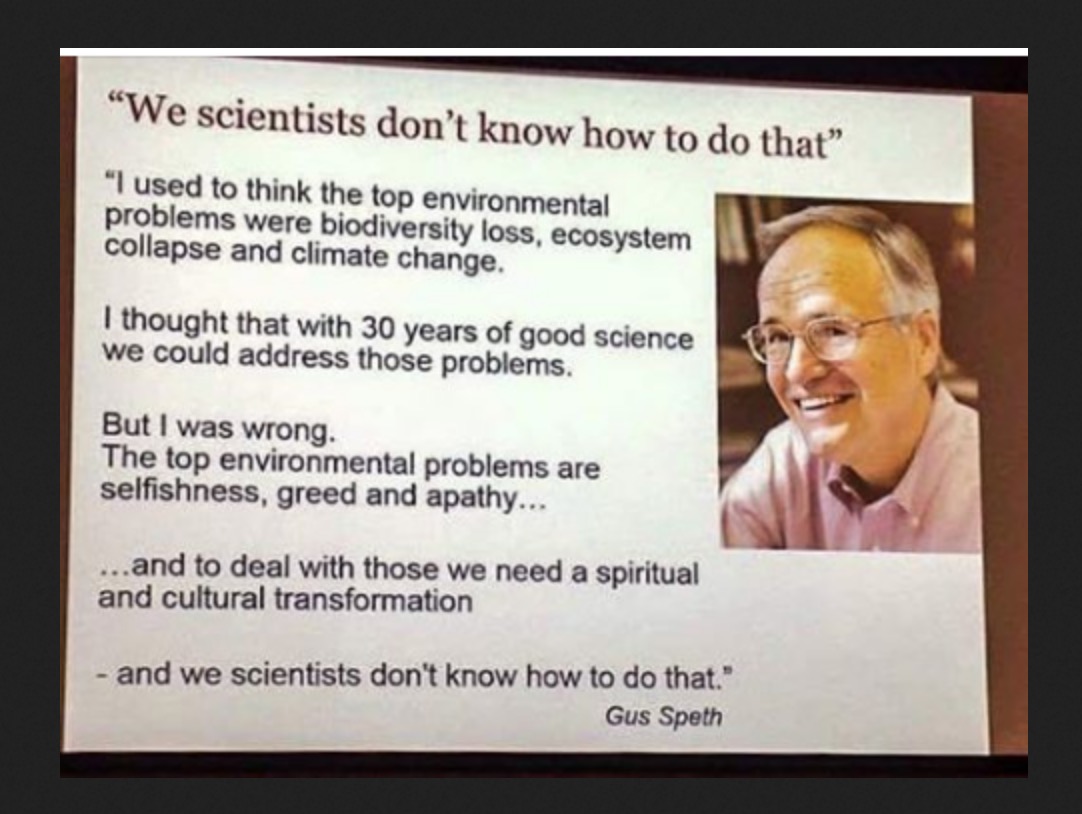
ALL VIDEOS
Title: A Comprehensive Look at the Importance of "Fossil Fuels" in COP28 Documents
Introduction
The inclusion of the term "fossil fuels" in the policy and guiding documents of the 28th annual Conference of Parties (COP28) is groundbreaking. For the first time, these words explicitly appear, marking a substantial shift in the conversation on climate change at a global level. This essay delves into the significance of this term, the actions required to capitalize on its introduction, and the role each individual, community, and nation must play to materialize this conceptual shift.
Significance of "Fossil Fuels" in COP28 Documents
Fossil fuels such as coal, oil, and natural gas, although integral to climate change discussions, have largely remained the metaphorical 'elephant in the room.' Their burning directly results in the emission of greenhouse gases and the consequential global warming. The explicit mention of "fossil fuels" in the COP28 documents is therefore critical. It embodies the global leadership's recognition of the direct impact fossil fuel consumption has on climate change. This acknowledgment serves as a benchmark, aligning national policies, corporate decisions, and public consensus towards a sustainable energy transition.
The Need for Action
The introduction of "fossil fuels" in the COP28 documentation is a significant stride, but the true test lies in its translation into action. Transitioning from fossil fuels to sustainable energy necessitates structural changes to existing infrastructures, steadfast political commitment, substantial financial investment, and widespread public endorsement.
Countries heavily reliant on fossil fuels for their economic sustenance should aspire to achieve net-zero carbon emissions through robust and pragmatic climate policies. Likewise, multinational corporations and businesses must recalibrate their strategies to align with the global green transition, investing in renewable energy technologies and reducing their carbon footprints. Financial institutions should divert investments away from fossil fuel-oriented projects and support businesses that are proactively addressing climate change.
Driving Collective Change
While governments and corporations undoubtedly play an instrumental role, the term "fossil fuels" in COP28 documents symbolizes a shared responsibility towards our planet. The role of public awareness and commitment in fostering a departure from fossil fuels cannot be overstated. All segments of society, be it policymakers, teachers, engineers, homemakers, and even students, can contribute to this essential shift.
Enhancing climate literacy can stimulate an understanding of the urgent need to transition from fossil fuels. From actively participating in climate initiatives, advocating for sustainable practices in our neighborhoods, patronizing businesses that adopt green practices, to opting for low carbon alternatives in our day-to-day lives – every step matters.
Conclusion
In sum, the unprecedented inclusion of "fossil fuels" in COP28 documents marks a seminal turning point in global climate discourse. It emanates a sense of optimism for a collective resolution to tackle the climate crisis head-on. The task at hand is to keep up the momentum through consistent commitment and collective action across all societal strata – from international conglomerates to the individual level.
Through our united efforts, we can ensure that this shift in dialogue signaled by COP28 transcends beyond paperwork and metamorphoses into tangible actions, securing a sustainable future for our world.
Visit www.itsmyclimate.com to explore more about how you can contribute to this global endeavor.
The Emergence of "Fossil Fuels" in COP28 Documents: Significance and Responsibilities Introduction The 28th annual Conference of Parties (COP28) recently introduced, for the first time, the term "fossil fuels" into its policy and guiding documents. The acknowledgment and deliberate use of these words signify a crucial and hopeful shift in global attitudes and actions towards climate change. This essay will examine the importance of the term's inclusion, the responsibilities it carries, and how individuals, societies, and nations can play their roles in realizing its potential for addressing the global climate crisis. The Importance of Acknowledging "Fossil Fuels" Fossil fuels - coal, oil, and natural gas - have long been the elephant in the room during climate change discussions. While scientists have linked the burning of these fuels to greenhouse gas emissions and subsequent global warming, there has been a notable reluctance among policy-makers and stakeholders to address them directly. However, the inclusion of "fossil fuels" in the COP28 documents represents a significant stride in confronting the realities of climate change. It sends a clear message that global leaders acknowledge the vital role that curbing the use of these fuels plays in mitigating climate change. This recognition serves to align national policies, corporate strategies, and public sentiment in moving towards more sustainable sources of energy. The Follow-Through While the COP28's explicit mention of "fossil fuels" signifies progress, it is equally crucial that this acknowledgment is accompanied by substantial actions and commitments. Transitioning to cleaner energy sources requires significant restructuring of existing infrastructures, political will, financial investments, and most importantly, widespread public support. Nation-states, particularly those heavily dependent on fossil fuels for their economic development, must commit to achieving net-zero carbon emissions through ambitious and actionable climate policies. Multinational corporations and businesses need to align their corporate strategies with the green revolution, investing in renewable energy technologies and seeking to minimize their carbon footprints. At the same time, financial institutions should shift their portfolios away from fossil fuels, instead supporting businesses and projects contributing positively to the climate crisis. Collective Action for Realizing the Shift While national governments and corporations have a significant role to play, the inclusion of "fossil fuels" in the COP28 documents underscores that the responsibility for climate action rests on everyone's shoulders. Public awareness and commitment towards minimizing fossil fuel use are paramount in realising this shift. Everyone, from policymakers to teachers, engineers to homemakers, can contribute towards the necessary paradigm shift. Promoting climate literacy can go a long way in increasing understanding and acceptance of the need to transition away from fossil fuels. Active participation in climate movements, lobbying for sustainable practices in local communities, supporting businesses with green initiatives, or choosing low carbon alternatives in our daily lives – these are but some of the myriad ways through which we can collectively drive change. In conclusion, the explicit acknowledgment of "fossil fuels" in COP28 documents marks a significant turning point in global climate discussions. It raises hope for a collective willingness to tackle the climate crisis at its roots. The challenge, however, lies in maintaining this momentum through sustained commitment and collective action at all levels – globally, nationally, and individually. It is only through our collective efforts that the paradigm shift signaled by COP28 becomes more than mere rhetoric and translates into concrete action to secure a sustainable future for our planet. - www.itsmyclimate.com. The most important thing we should be paying attention to regarding the climate is our greenhouse gas emissions, particularly carbon dioxide (CO2). If we could only change one thing, it would be to significantly reduce our carbon footprint. This means transitioning away from fossil fuels towards clean, renewable energy sources, promoting energy efficiency and conservation, and adopting sustainable agricultural practices, among other things. Climate change is largely driven by human activities that release large amounts of CO2 into the atmosphere, such as burning fossil fuels for energy and deforestation. Therefore, reducing our carbon emissions is crucial to mitigating the worst impacts of climate change. Climate change and new drilling for oil and gas by many nations is a topic that has stirred up a significant amount of controversy, galvanizing debates about the impacts on our ecosystems and the future we cultivate for the generations to come. The question we need to address is: how can we, as ordinary citizens, contribute to halting these activities that lay siege to our planet's health? What tools do we have to influence both our governments and the colossal oil companies? The first measure that can be taken is to increase public awareness about the environmental damage caused by drilling for oil and gas. Various social platforms can be leveraged for organizing campaigns and online discussions around the main topic - “Climate change and new drilling for oil and gas by many nations". Educated communities are more likely to make informed decisions and incite change. Promote renewable energy. Shifting our energy consumption towards clean, renewable resources can significantly shake the profitability of drilling businesses, encouraging these industries to evolve along with the public demand. Investing in clean energy technology is not only a greener choice but also a way to stimulate market competition against fossil fuels. By positioning renewables as a commercially viable alternative, new drilling projects may appear less attractive. Promoting conscious consumerism can impact the revenue of these companies. A shift in consumer ethos towards environmental friendliness can pressure manufacturers and businesses to reformulate their practices to sustain their customer base. Public lobbying and advocacy can influence legislation. Through collective action, citizens can push for stricter environmental guidelines on drilling operations and stronger penalties for companies that fail to comply. Engaging citizen-funded research can be a powerful counter to the influence of big oil on scientific studies. An impartial perspective is critical to unveil the real impacts of oil and gas drilling and substantiate our fight against climate change. Every vote can help shift the landscape of fossil fuel support. Endorsing political candidates who are committed to countering climate change aligns government policies with public interest. The importance of personal lifestyle changes shouldn't be understated. Reducing personal oil and gas usage, whether by driving less, minimizing the use of plastics, or improving home energy efficiency, directly curbs the demand for new drilling. Shareholders play a significant role in the strategic direction of companies. Activist shareholding, a practice of using stock ownership to influence company decisions, can propagate the indispensable revisions within the industry. The education sector must play a role by integrating environmental studies into their curricula, fostering a future generation of environmentally conscious citizens. We either change or die. Building local, national, or international coalitions increases the scale of influence against these practices. These coalitions can compel discussions among politicians, CEOs, and other decision-makers. Consumer boycotts have traditionally been successful in forcing companies to change unsuitable practices. An organised boycott against products made from oil and gas could impact the financial bliss of these corporations, triggering a review of their operations. Utilizing the power of petitions should not be ignored. A petition with substantial public support can instigate a discussion at governmental levels about the intervention needed in oil and gas drilling operations. Supporting and financing green initiatives displays public endorsement for cleaner alternatives. This can motivate inventors and entrepreneurs who are pioneering these initiatives. Another strategy lies in shaping public opinion to pressure insurance companies to withdraw coverage for drilling projects. Such a step can make these projects riskier and less profitable. The responsibility to change falls not only on individuals but also on corporations. Corporate Social Responsibility (CSR) programs which focus on transitioning to green energy can place these corporations at the forefront of environmental preservation. Using art and literature to spread awareness about the environmental crisis can have a profound impact. These mediums have an uncanny ability to stir emotions and inspire action. Supporting investigative journalism can expose violations by oil and gas companies. Understanding the scope of these violations can increase public pressure on implementing stricter regulatory frameworks. Transparency is key. Encouraging businesses and governments to disclose their carbon footprint can spotlight the biggest offenders and push them towards renewable practices. Increasing the knowledge and understanding of the financial sector about the risks related to oil and gas investments can lead to a reduction of investments in these fields. Promoting green jobs can showcase that environmental preservation does not equate to economic downfall. Evidence of the opportunity for economic prosperity can sway public and political opinion. Hosting public debates and lectures on the issue can inform individuals and spur them into action. A well-informed population is undeniably the first line of defense in our fight against climate change. The ratification of international agreements provides powerful tools to curb oil and gas drilling. Lobbying for climate treaties can urge countries to prioritize ecological balance over profit. Encourage corporations to visualize the long-term prospects rather than short-term profits. The adverse effects of their operations could eventually become a major financial liability. Promote land rights of indigenous people as they are often the first line of defense against fossil fuel extraction. Their knowledge about land conservation serves as an effective counter to resource exploitation. Donating to environmental organizations allows them to continue their invaluable work in combating the threats posed by the oil and gas industry. Implementing a carbon tax can impact the profitability of fossil fuels and deter new drilling projects. This will also incentivize the use of more carbon-friendly alternatives. Inculcate environmental ethics among children. Tomorrow's leaders must be made aware of the dire need to break away from the perilous path of fossil fuel reliance. Promote the use of public transport, biking and walking. This will help reduce the consumption of oil and gas, thereby impacting the need for new drilling. Banks should be persuaded to stop financing fossil fuel projects. This direct hit at the funds can make it extremely difficult for drilling projects to survive. To conclude, the ignorance of humanity is shocking, and understanding the environmental implications of our actions can bring about a significant change. We will either become responsible or we’re dead. We have to factor the environmental cost into our decisions and realize that the world does not offer an infinite abundance of resources for us to pillage. Every individual holds the power to challenge the present paradigm and strive for a sustainable future.
Seek legal avenues to challenge new drilling rights. Legal actions can be taken against companies and governments alike that engage in practices with catastrophic consequences for our environment.
